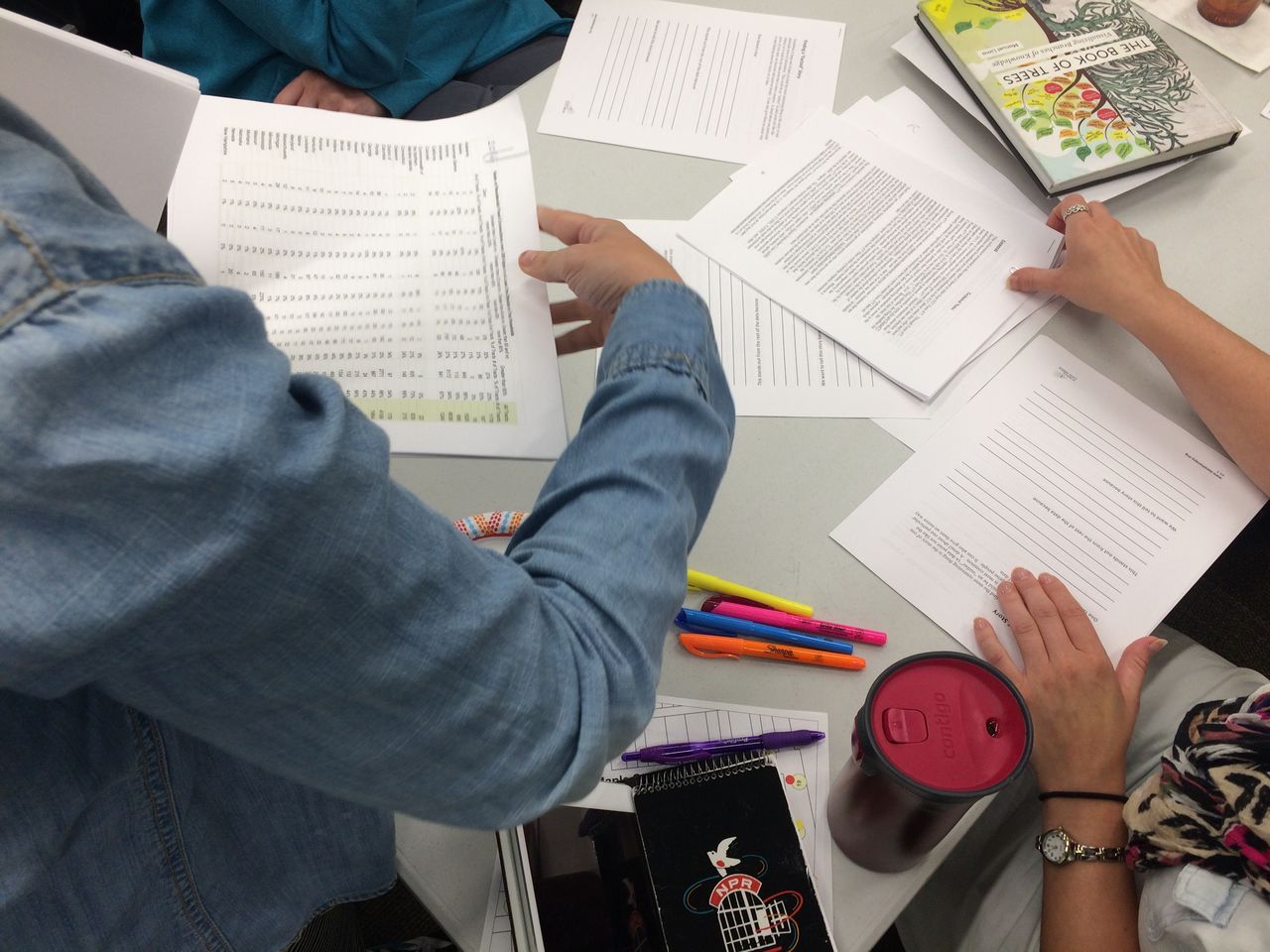This is part one in a two part series.
This first post is for civic data intermediaries interested in engaging with local libraries. Part two (coming soon) will cover the same relationship from the other direction – library workers who would like to get better connected to their local civic data intermediaries. As a civic data intermediary, your role includes helping people find and use data. Libraries have a long tradition of providing similar support for all kinds of information, but many are just beginning to make connections to data intermediaries like you in the civic data space. This guide is to help you facilitate outreach - either to engage with local public and academic libraries, or to help make the case to your upper management why developing a better relationship with your local libraries will be the best thing you do in 2018.
Note: Because of the organizational differences between public and academic libraries, we are treating them separately in this post.
Engaging with your Public Library
1. Who should you contact?
If you know already someone who works in your local public library, that connection can be your starting point for locating a library worker who works with data and public information. If not, checking the library’s staff directory online is a good way to get started. Here’s what to look for:
- Departments within the public library that might be interested in designing long-term strategic initiatives around civic data include:
- Digital Strategy / Digital Initiatives
- Technology Services / Emerging Technology
- Departments within the public library that might reach audiences interested in civic data include:
- Adult programming / Program coordinators
- Information services / Reference services
- Nonprofit resource centers / Foundation centers
- Outreach / Community Engagement
2. What are potential areas for collaboration?
-
Advancing inclusive civic data efforts: Beyond their longstanding commitment to inclusion and access, public libraries also provide the scaffolding and support services that allow all residents to participate in the civic data space. These include basic computer classes, one-on-one tech assistance, public PCs, free wifi access, hotspot checkouts, and more.
-
Resource awareness: Public library staff field a wide range of questions from residents and direct them to appropriate resources. Training library staff on the civic data available can encourage greater community awareness over time and ensure the resources are used.
-
Public programming: Public libraries can host open data events, speakers, workshops, and civic data interest group meetups.
-
Data publishing and transparency: Public libraries are key civic institutions, in most cases funded to some degree by tax dollars. Libraries can be encouraged to publish appropriate, non personally-identifiable datasets around locations and usage.
3. What are the benefits to the public library?
-
Public libraries want to connect people with the best information and learning opportunities possible. Civic data is an increasingly important resource that some library staff, depending on their technical background, are not confident using. Training these staff on basic civic data concepts will allow them to better serve their communities.
-
Public libraries are users of civic data themselves in order to plan effective programs and services and evaluate their impact in the community. For example, libraries may want to know where children under five live or what other nonprofit services are available in an area. Improving lines of communication between civic data intermediaries and library staff may open up opportunities for libraries to access additional data and/or find volunteers to assist in analysis and visualization.
4. What are some examples of public library-civic data partnerships?
- Carnegie Library of Pittsburgh is a publisher on the Western Pennsylvania Regional Data Center and the two organizations collaborate on a wide range of data literacy programming for the public, including data training, Data Day, and more.

-
Through the Open Data to Open Knowledge project - the city of Boston is partnering with the public library to create a digital civic data catalog and then will provide classes on how to use the tool.
-
The Chapel Hill Public Library is home to the open data portal and holds public events to explore open data.
-
Open Chattanooga is a collaborative between the City of Chattanooga, the Chattanooga Public Library and the Open Chattanooga Brigade. The data portal is hosted by the Public Library and is part of their website.
Engaging with your Academic Library
1. Who should you contact?
If you have a connection with someone who works for a local academic library, ask for their thoughts on who might be a good starting point! If not, there are a number of different positions in academic libraries that may be working with civic information. To start, look on the library website to identify individuals in one or more of the following roles:
- Data Services Librarian
- Digital Scholarship Librarian
- Government Documents Librarian
- Liaison librarian / Subject Specialists for urban studies, public health, public policy, or social work
- Assistant or Associate University Librarian for Research
2. What are potential areas for collaboration?
-
Metadata: Librarians are experts at creating information – metadata – to describe and facilitate access to content, whether for books, journal articles, archival collections, or datasets. If you run an open data portal, or you advise data creators on good practices for describing data they collect, your academic library may be able to help by advising on best practices for metadata, developing controlled vocabularies, and pointing you to widely-used standards so you don’t reinvent wheels.
-
Repository selection and management: Libraries have experience developing and administering digital repository systems that house a variety of data objects. If you are in the process of selecting a repository platform for managing and providing access to data, libraries can be valuable consultants on platform and workflow decisions.
-
Digital preservation and archiving: Preservation of information is a core responsibility of libraries and archives. Your academic library likely has an archives staff that concentrates on long-term preservation of content, including digital records. That unit, or others, may be able to support your own approach for preserving civic information.
-
Assistance to data publishers: For civic projects involving data publication, the academic library may be able to assist you in working with data publishers; this assistance may include advising on data management planning and preparation of data for sharing.

-
User needs: Workers in an academic library are very tuned in to the informational needs of students, faculty and researchers. Learning about user needs can help drive decisions about datasets to pursue, tools to build, and trainings to design.
-
Events and Education: The academic library, often a centrally located and well-connected part of an institution, can be a great space for civic data workshops, user groups, hackathons, and trainings.
3. What are the benefits to the academic library?
-
Many academic institutions are focusing more explicitly on public engagement as a core part of their missions, for example building centers that support collaborative partnerships between universities and community organizations. Libraries, which are service-minded organizations, want to demonstrate alignment with their institutional missions; collaboration with civic data intermediaries like you can help them do this.
-
Readily-available civic data, whether through open data portals or other means, supports research and community-based learning in universities. Instructors may use civic open data in courses, students may create projects that draw on civic information, and faculty may analyze civic data for a study of regional relevance. Academic libraries provide better support to data users on their campuses through partnership with civic organizations. Among the disciplines that may particularly benefit from this engagement are urban studies, public health, public policy, social work, sociology, business, education, and others.
4. What are some examples of academic library-civic data partnerships?
-
At the University of Pittsburgh, the University Library System has worked with the University Center for Social and Urban Research, which hosts and manages the Western Pennsylvania Regional Data Center. The library participated in the selection of a repository platform for the open data portal, consulted on metadata and privacy issues, and has hosted events on regional data and the data center.
-
Temple University Libraries partnered with Open Data Philly to investigate how libraries can assist with preservation and long-term access to open civic data.
-
Indiana University Northwest Academic library houses the Indiana University Northwest Center for Data and Analysis which serves as a data intermediary for both the campus and community.
Finally…
Have you already worked with libraries in your practice as a data intermediary? Is there something in our list that’s missing, or that we should amplify? Let us know! You can get in touch with us on twitter or through email.



